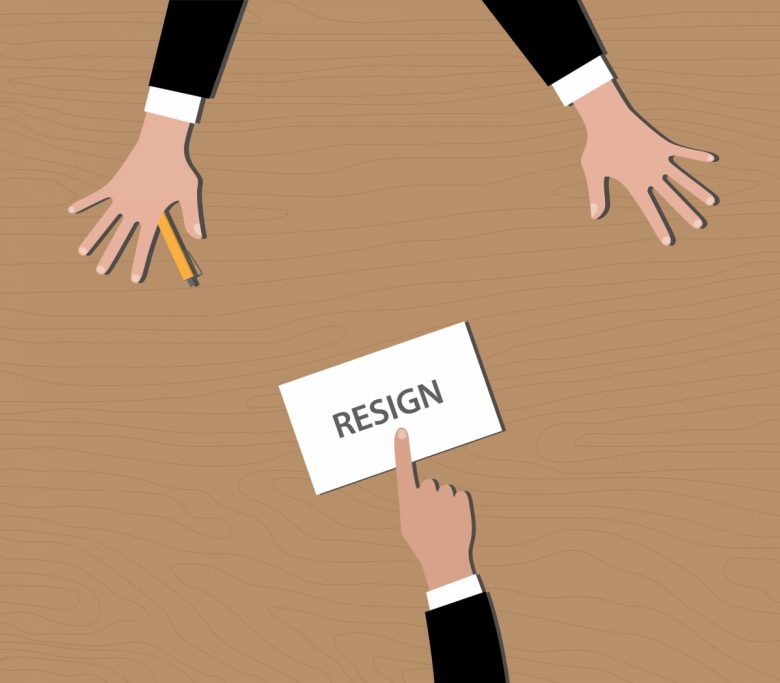Does your business seem to be a revolving door for employees? Does it seem like nobody wants to work at your company, or that people just seem to be quitting for no reason? Constant employee turnover can be a problem, but there’s always a reason for it. High turnover doesn’t happen without a cause.
A recent study found the average U.S. annual turnover at about 20%. And, they also concluded that about two-thirds of that is voluntary. Some industries tend to have higher retention rates than others. For example, turnover rates tend to be higher in industries like retail and hospitality as compared to government and finance-related jobs. Here is a short breakdown of the average turnover rates by industry for last year.
- Construction: 53%
- Manufacturing: 39%
- Trade, Transportation, and Utilities: 54%
- Information: 37%
- Financial activities: 29%
- Professional and Business services: 63%
- Education and Health services: 38%
- Leisure and Hospitality: 82%
- Government: 20%
Some other things could be influencing these numbers. Some of these industries were affected by the Great Resignation that started at the end of 2022. But, overall these numbers reflect the average for the past 3 years or so.
It is important to know the cause so you can find the appropriate solution. Here are a few common reasons for low employee retention.
Toxic Working Environment
Everyone has a bad day every now and then. Even in the best jobs, there’s bound to be an occasional conflict or misunderstanding between colleagues.
But a toxic work environment goes way beyond this, causing people to hate their jobs.
A toxic work environment can cause existing physical health problems to get worse, and it can even create mental health problems. These outcomes from a toxic work environment aren’t just a person’s imagination.
There are many signs that a work environment is toxic. One sign is in the way co-workers handled conflict. Are people handling conflict by yelling at each other? Or do they try to work it out amongst themselves in a collective manner or get management involved to resolve the conflict?
Another area to look at is how well and how much-involved everyone is. Are there any team members that are regularly excluded from participating in work or after-work-related activities? Isolating employees can cause things like cliques to form. This hurts the unity of the workplace and also makes it harder to maintain a solid collaborative effort with everyone. which
If gossip harassment, intimidation, or bullying are tolerated, you are helping to enable a toxic working environment. This will cause your good employees to stop caring about their jobs and encourage them to walk away from them.
Lack of Growth Opportunities
Your most ambitious employees will seek to grow their careers and would like to know that there is a future for them there. The average amount of time employees stay at a job is about 4.1 years according to the U.S. Bureau of Labor and Statistics. This means that in the 2020s, most workers will not stay at a job longer than 5 years. While you can’t keep your employees forever, providing growth opportunities may help them stay longer.
Most employees know that it takes time to prove themselves in a new job. But, at some point, if there are no growth opportunities, employees may have no choice but to go elsewhere.
This could be true for employees who don’t necessarily want to be promoted but just want a different challenge. Lateral job changes – that is, jobs at a similar level – can offer a good change of pace. Companies that allow a manager to block these types of transfers may do so under the guise of “we need you here.” This can leave employees with no choice but to go elsewhere.
Lack of Recognition
How are your employees recognized for their efforts? How often are they shown appreciation? A lack of recognition can cause employees to become discouraged. Employee recognition doesn’t always have to be a monetary bonus. Here are just a few ideas:
- Say “thank you” for a job well done.
- Recognize each person’s birthday.
- Celebrate days in your industry, especially those that appreciate workers, such as Administrative Professionals Day.
- Provide special rewards for goals that employees have reached.
- Provide free snacks, drinks, or meals when the team is working overtime or during the holidays.
Recognizing employees is not only great for retention, but it is also a good way to improve employee morale. There are many different ways to reward your employees and recognize their hard work.
Poor Management
Have you ever had a boss take credit for your idea? Instead of giving you credit, he or she takes the idea and takes the credit. This is a strategy of a manager who decreases employee engagement.
Positive, productive managers give credit where credit is due. They are friendly, yet fair. They refrain from gossiping and enforce the rules fairly. Effective managers proactively communicate with employees. This helps people know what is expected of them so that problems can be prevented.
Ineffective managers may gossip about those around them. This causes morale to suffer. A manager with poor communication skills will leave those on their team wondering what’s happening, and this can create problems. A manager who hesitates or completely refuses to address problems can also damage morale.
There is a list of huge companies that failed due to poor management. So countless other small and medium-sized enterprises have no chance if they are consistently managed poorly. Losing employees is just one of the effects of poor management. Learn to evaluate your leadership and management philosophy, leadership type, and skill set to improve your overall retention rate.
Improper Compensation
Employees who find out that they’re being underpaid may spread the word on their way to a better job offer. This could lead to referrals to a competitor. Paying employees fairly can prevent this problem. And, in the digital age of sites like Glassdoor, it’s easier than ever for employees to find out if your company is known for fair or unfair pay policies.
Lack of Purpose in the Job
Everybody’s working for the weekend, but it helps to find purpose in work. Do your employees have a sense of purpose in what they do? Especially in jobs that are mundane or repetitive, is there a way to connect each employee’s job to a greater mission or purpose?
To help employees find purpose in their positions, start by aligning the company’s vision and values with the employees’ individual goals. This will help them see the bigger picture and understand how their work contributes to the organization’s overall success. You may also find ways to allow employees to communicate and express their opinions and ideas.
Also, encourage them to develop their skills and interests and to take ownership of their tasks. By using their individual talents and having a sense of ownership, they may feel more pride in their work because they can better express their uniqueness. All while responding well to the responsibilities they’ve been given.
Employees want to feel like what they do matters. If a job feels dull and without purpose, it can lead people to feel not only engaged but to feel that there’s no reason to not look for other options. What kind of purpose does your company give your employees?
Poor Working Conditions
Imagine getting up for work early since you’re doing someone else’s job, too. The office is dark, with harsh, artificial lighting. You put your things down at your desk. Then, you stop to use the restroom, which stinks to high heaven. You go back to your desk, noticing how dirty the floors are. Glad to be in an area that doesn’t smell, you plop down in your chair. You forgot how badly this chair makes your back hurt!
Do you see any of the poor working conditions in this picture?
- Darkness isn’t an ideal working environment. And, natural lighting should be there whenever possible.
- No one should have to sit in a painful chair.
- A clean work environment is a must.
- Finally, make sure that your group is fully staffed to help your team avoid burnout.
Conclusion
Many companies face the problem of low employee retention. This problem can cost time and money, but proactive companies can take steps to prevent it. Knowing the most common causes of low employee retention is the first step in solving this complex problem. And, having an awareness of these causes can help your organization address and solve the problem.














Pingback: 7 Reasons for Low Employee Retention – Entrepreneur – Start, Run and Grow Your Business
Pingback: 7 Reasons for Low Employee Retention - Ikaroa
Pingback: 7 Reasons for Low Employee Retention | Entrepreneur Canada
Pingback: 7 Reasons for Low Employee Retention – Austin Rotter
Pingback: 7 Reasons for Low Employee Retention – Andrea Zanon
Pingback: 7 Reasons for Low Employee Retention – Joseph Odierno Buffalo